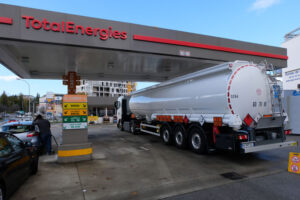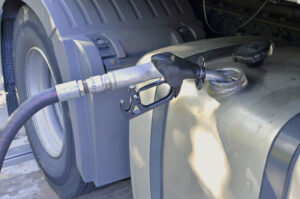Maximizing fuel efficiency stands as a cornerstone objective in contemporary business operations, essential for both fiscal responsibility and ecological sustainability. Fleet telematics, with its ability to furnish real-time data and in-depth insights into vehicle and driver performance, serves as a formidable tool in achieving this goal. By leveraging fleet telematics and fuel efficiency, businesses can set up five strategic pathways to minimize fuel consumption effectively.
Implement Idling Reduction Programs
Idling vehicles contribute significantly to unnecessary fuel consumption. Fleet telematics can identify patterns and trends of idling across your fleet, enabling the establishment of targeted reduction programs. By setting alerts for when vehicles idle beyond a predetermined threshold, fleet managers can take immediate action. This approach not only reduces fuel waste but also minimizes the environmental impact of your operations.
Enhance Route Planning
Inefficient routing significantly impacts fuel consumption within fleet management solutions. Fleet telematics offers comprehensive insights into vehicle locations and travel routes, facilitating the optimization of daily journeys. Through the analysis of historical data, fleet managers can discern and rectify common inefficiencies like unnecessary detours or congested areas. This ensures drivers are directed along the most direct and fuel-efficient paths, ultimately reducing fuel usage, cutting costs, and enhancing overall operational efficiency.
Monitor and Improve Driving Behaviors
Aggressive driving behaviors such as speeding, harsh braking, and rapid acceleration drastically escalate fuel consumption rates. Utilizing fleet telematics systems to monitor and analyze these behaviors enables targeted driver coaching initiatives and improvement programs. By fostering smoother driving practices through such interventions, businesses can witness tangible enhancements in fuel efficiency, ultimately contributing to cost savings and sustainable operations over the long term.
Ensure Timely Vehicle Maintenance
Maintaining vehicles in optimal condition is paramount for fuel efficiency. Fleet telematics, through timely alerts, ensures managers address maintenance needs promptly, whether it’s adjusting tire pressure or servicing the engine. Proactive maintenance not only curbs fuel consumption but also prolongs the fleet’s lifespan, translating into cost savings and operational reliability. By prioritizing vehicle upkeep, businesses can optimize fuel efficiency, mitigate expenses, and bolster the overall performance of their fleet operations.
Utilize Fuel Monitoring Features
In addition to fuel monitoring, fleet telematics systems offer comprehensive insights into consumption patterns, facilitating the identification of optimization opportunities. This multifaceted capability enables managers to discern the direct influence of operational adjustments, driving habits, and maintenance protocols on fuel expenditure. By leveraging these insights, businesses can meticulously tailor their strategies, effectively curtailing fuel costs while simultaneously bolstering operational efficiency and sustainability.
By implementing these strategies, businesses can significantly reduce their fuel consumption, lower operational costs, and improve their environmental footprint. At OnTrak Solutions, we understand the importance of fleet telematics and fuel efficiency, specializing in leveraging fleet telematics to drive significant improvements in fuel efficiency. Our comprehensive suite of insurance telematics solutions provides real-time data and actionable insights, enabling businesses to monitor and manage their fleets more effectively.
From idling reduction programs and optimized route planning to driver behavior monitoring and maintenance alerts, our platforms are designed to address the key factors that impact fuel consumption. By partnering with us, you gain access to tools that help you reduce operational costs and enhance sustainability. Let OnTrak Solutions be your partner in achieving superior fuel efficiency and operational excellence.



